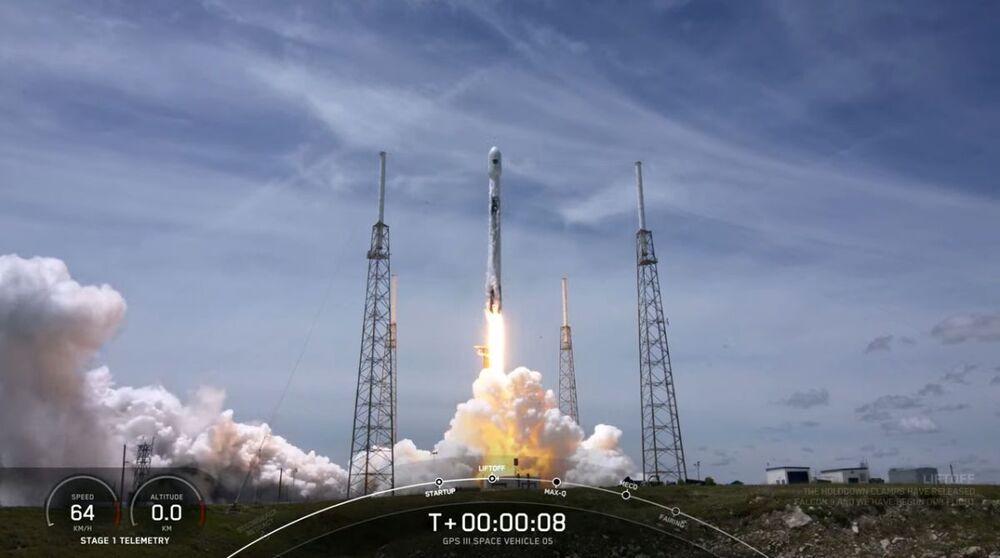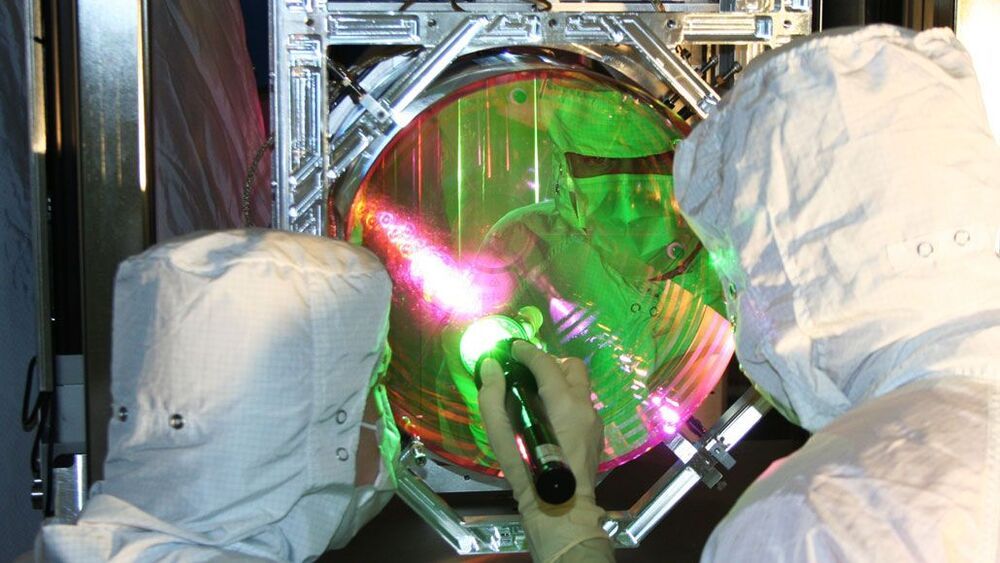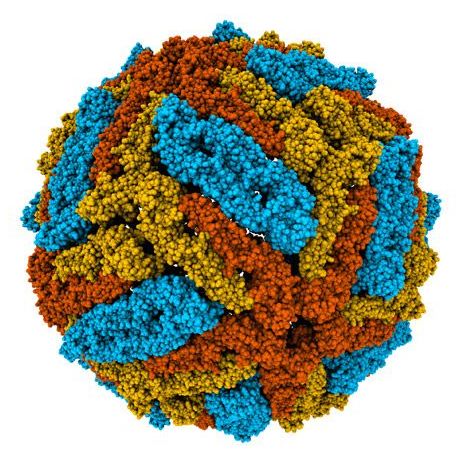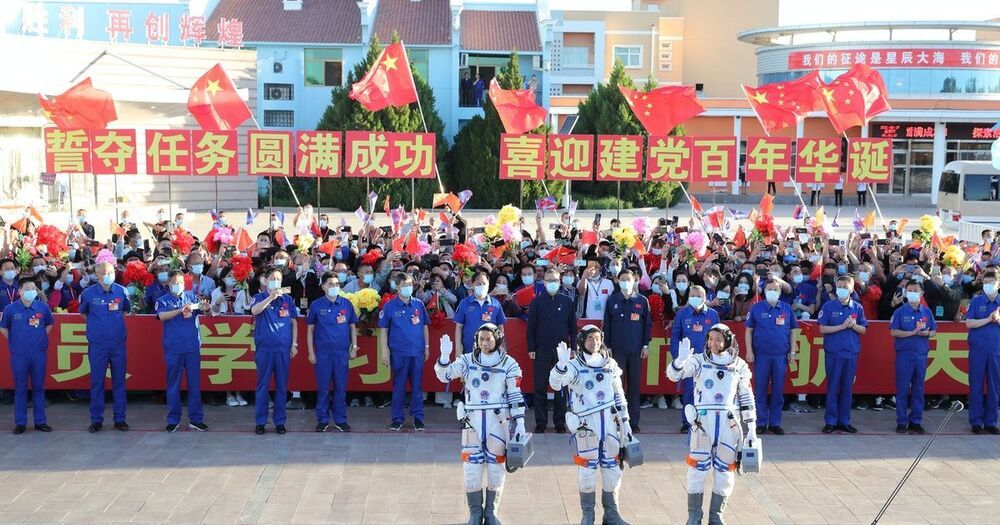A spyware in a 6-year-old Ferocious Kitten covert surveillance campaign now targets Telegram and Psiphon VPN users in Iran.



It’s SpaceX’s 19th rocket launch (and landing) of the year.
All of this is great news for SpaceX, as the company has been relying heavily on its fleet of veteran rockets, with many Falcon 9 first stages having racked up five or more flights each.
Out of 19 missions so far this year, only one has featured a brand new Falcon 9; the rest were on flight-proven boosters.
It’s also great news for Space Force and taxpayers as flying on reused rockets translates to a savings of nearly $53 million across the two flights (GPS III-SV05 and GPS III-SV06), Space Force officials said.




Observing the secrets of the universe’s “Dark Ages” will require capturing ultra-long radio wavelengths—and we can’t do that on Earth.
The universe is constantly beaming its history to us. For instance: Information about what happened long, long ago, contained in the long-length radio waves that are ubiquitous throughout the universe, likely hold the details about how the first stars and black holes were formed. There’s a problem, though. Because of our atmosphere and noisy radio signals generated by modern society, we can’t read them from Earth.
That’s why NASA is in the early stages of planning what it would take to build an automated research telescope on the far side of the moon. One of the most ambitious proposals would build the Lunar Crater Radio Telescope, the largest (by a lot) filled-aperture radio telescope dish in the universe. Another duo of projects, called FarSide and FarView, would connect a vast array of antennas—eventually over 100000, many built on the moon itself and made out of its surface material—to pick up the signals. The projects are all part of NASA’s Institute for Advanced Concepts (NIAC) program, which awards innovators and entrepreneurs with funding to advance radical ideas in hopes of creating breakthrough aerospace concepts. While they are still hypothetical, and years away from reality, the findings from these projects could reshape our cosmological model of the universe.
“With our telescopes on the moon, we can reverse-engineer the radio spectra that we record, and infer for the first time the properties of the very first stars,” said Jack Burns, a cosmologist at the University of Colorado Boulder and the co-investigator and science lead for both FarSide and FarView. “We care about those first stars because we care about our own origins—I mean, where did we come from? Where did the Sun come from? Where did the Earth come from? The Milky Way?”

In the very last moments of the movie, however, you would also see something unusual: the sprouting of clouds of satellites, and the wrapping of the land and seas with wires made of metal and glass. You would see the sudden appearance of an intricate artificial planetary crust capable of tremendous feats of communication and calculation, enabling planetary self-awareness — indeed, planetary sapience.
The emergence of planetary-scale computation thus appears as both a geological and geophilosophical fact. In addition to evolving countless animal, vegetal and microbial species, Earth has also very recently evolved a smart exoskeleton, a distributed sensory organ and cognitive layer capable of calculating things like: How old is the planet? Is the planet getting warmer? The knowledge of “climate change” is an epistemological accomplishment of planetary-scale computation.
Over the past few centuries, humans have chaotically and in many cases accidentally transformed Earth’s ecosystems. Now, in response, the emergent intelligence represented by planetary-scale computation makes it possible, and indeed necessary, to conceive an intentional, directed and worthwhile planetary-scale terraforming. The vision for this is not to be found in computing infrastructure itself, but in the purposes to which we put it.


The Lunar Lantern, an intriguing concept for establishing a human presence on the Moon, is currently being featured at the 17th International Architecture Exhibition.
In October of 2024, NASA’s Artemis Program will return astronauts to the surface of the Moon for the first time since the Apollo Era. In the years and decades that follow, multiple space agencies and commercial partners plan to build the infrastructure that will allow for a long-term human presence on the Moon. An important part of these efforts involves building habitats that can ensure the astronauts’ health, safety, and comfort in the extreme lunar environment.
This challenge has inspired architects and designers from all over the world to create innovative and novel ideas for lunar living. One of these is the Lunar Lantern, a base concept developed by ICON (an advanced construction company based in Austin, Texas) as part of a NASA-supported project to build a sustainable outpost on the Moon. This proposal is currently being showcased as part of the 17th International Architecture Exhibition at the La Biennale di Venezia museum in Venice, Italy.
The Lunar Lantern emerged from Project Olympus, a research and development program made possible thanks to a Small Business Innovation Research (SBIR) contract and funding from NASA’s Marshall Space Flight Center (MSFC). Consistent with ICON’s commitment to developing advanced construction technologies, the purpose of Olympus was to create a space-based construction system that will support NASA and other future exploration efforts on the Moon.
